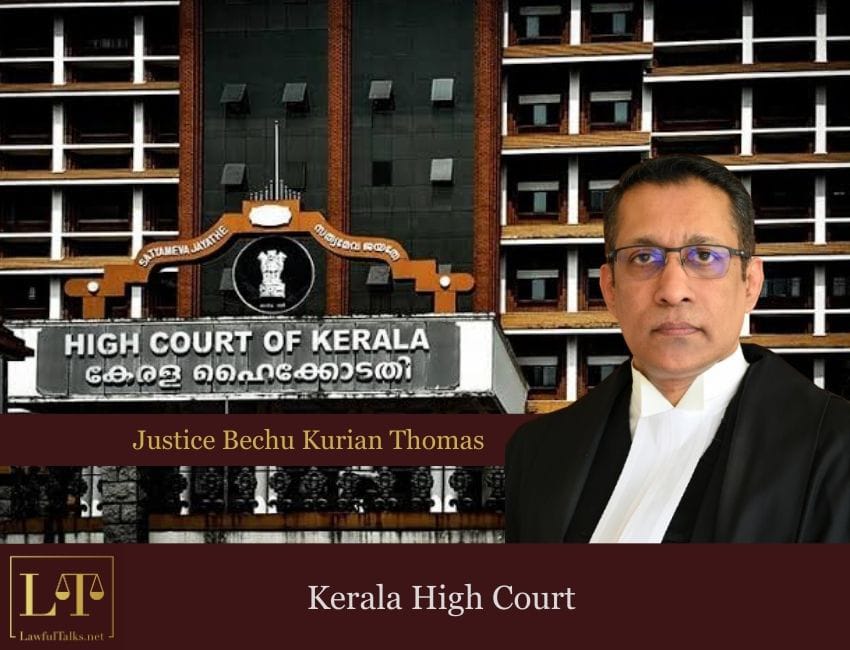Allahabad HC Sets Aside Afzal Ansari's Conviction, Allows Him to Continue as MP

In a recent ruling, the Kerala High Court addressed a litigant’s persistent attempts to transfer cases by alleging judicial bias against the presiding officers of the Family Court in Thalassery. Justice Bechu Kurian Thomas presided over the matter, dismissing the third transfer petition filed on the grounds of unsubstantiated allegations.

The petitioner sought to transfer cases pending in the Family Court, Thalassery, to the Family Court, Vadakara. The allegations stemmed from a matrimonial dispute with the petitioner’s estranged spouse. It was claimed that the Presiding Officer of the Family Court in Thalassery had demonstrated bias by, among other actions, accepting petitions from the opposing party without prior notice, treating documents submitted by the petitioner as forged, and allegedly prioritising the opposing party’s submissions. Additionally, the petitioner’s counsel filed a complaint with the Registrar General of the High Court alleging judicial bias. However, Justice Thomas dismissed the transfer petition, noting that this was the third such petition filed by the petitioner, with previous petitions citing similar allegations against different presiding officers.
Justice Thomas began by summarising the petitioner’s allegations and history of transfer petitions:
“During the hearing, it was revealed that this is the third transfer petition filed by the petitioner alleging bias of the Presiding Officer. Curiously, the earlier two transfer petitions alleged bias against the earlier Presiding Officer, while the present transfer petition alleges bias against the new Presiding Officer of the same court.”
The Bench observed that the contentions raised in the current petition mirrored those in the earlier petitions, indicating a pattern of allegations against any presiding officer assigned to the petitioner’s cases. Specifically, out of the fifteen grounds cited in the present transfer petition, five were verbatim repetitions of the previous petition, primarily centred on allegations of judicial bias and prejudice.
In evaluating the validity of these allegations, Justice Thomas accentuated the serious nature of accusing a judicial officer of bias, stating:
“An allegation of bias against a Judicial Officer is a matter of serious concern. Reckoning the nature of duties bestowed upon a judicial officer and allegations of bias cannot be permitted to be raised without any basis and on mere surmises and assumptions. A judicial officer cannot be browbeaten to suit the convenience of a party to a lis. Unless the allegations of bias against a judicial officer are sturdy and impregnable, courts cannot rely on mere apprehensions to transfer cases from one court to another.”
The judgement highlighted the potential damage such baseless allegations could inflict on the judicial system, emphasising that unfounded accusations erode public confidence in the judiciary. Adverse rulings alone, the Court held, do not constitute valid grounds for suspecting a judicial officer's impartiality. Justice Thomas reasoned:
“A judicial officer is expected to dispense justice to the best of his ability. While dealing with a case, a judicial officer will have to issue several orders. The orders are issued as the circumstances warrant. In that process, orders adverse to a party will have to be issued. Adverse orders by themselves cannot be reasons to doubt the integrity of the judicial officer. The aggrieved certainly have remedies before the higher forum.”
Justice Thomas also referred to precedents from the Supreme Court of India to illustrate the importance of substantial evidence in claims of bias. In Kumaon Mandal Vikas Nigam Ltd. v. Girja Shankar Pant [(2001) 1 SCC 182], the Supreme Court ruled that:
“Mere general statements will not be sufficient for the purposes of indication of ill-will. There must be cogent evidence available on record to come to the conclusion as to the existence of any element of bias which has resulted in the miscarriage of justice.”
This principle was further reinforced by the Supreme Court in State of Punjab v. Davinder Pal Singh Bhullar [(2011) 14 SCC 770], where it was observed that allegations of judicial bias could only be entertained if they were grounded in tangible evidence, not mere suspicions or accusations. In line with these precedents, Justice Thomas ruled that the petitioner’s allegations, without concrete evidence, were insufficient to justify a transfer of cases.
Ultimately, Justice Thomas dismissed the transfer petition, ruling that the petitioner’s persistent accusations and repetitive petitions constituted a deliberate attempt to obstruct the judicial process. He stated:
“The similarity of allegations raised against two different Presiding Officers who dealt with petitioner’s cases is a clear indication of petitioner’s calumny. The various allegations raised by the petitioner against the Presiding Officer are without any merit. Such vituperative denigration of a judicial officer by a litigant has to be dealt with sternly and cannot be tolerated under any circumstances whatsoever.”
To emphasize the gravity of the petitioner’s conduct and discourage further frivolous petitions, the Court imposed costs of Rs. 15,000 on the petitioner, directing payment to the District Legal Services Authority, Thalassery, within four weeks.
Case Details- TR.P(CRL.) No.43/2024
Advocates for the Petitioner: Ms. Surumi Shakeel and Mr. Shaijan Joseph
Advocates for the Respondents: Mr. Asaf Ali T. and Ms. Laliza. T.Y.; Public Prosecutor C.N. Prabhakaran








































































































































































































































































































































































































































































































































































































































































































